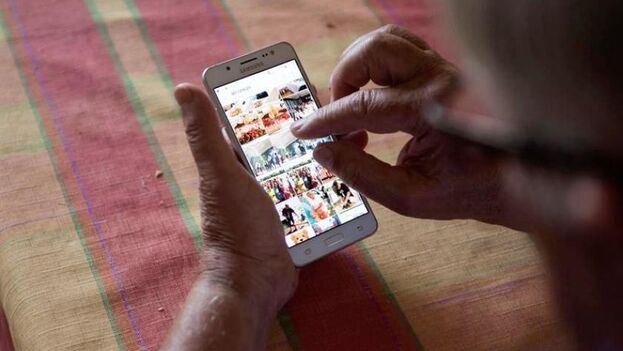
![]() 14ymedio, Yoani Sanchez, Generation Y, 30 September 2020 — The walls are made of pure brick and sunlight trickles through the gaps in the ceiling, but the young woman sitting near the window is holding a state-of-the-art smartphone in her hands, with which she follows social networks minute by minute. The scene can be in any city or town in Latin America, where access to new technologies is, right now, marking the social contrasts that will become even greater in the coming years.
14ymedio, Yoani Sanchez, Generation Y, 30 September 2020 — The walls are made of pure brick and sunlight trickles through the gaps in the ceiling, but the young woman sitting near the window is holding a state-of-the-art smartphone in her hands, with which she follows social networks minute by minute. The scene can be in any city or town in Latin America, where access to new technologies is, right now, marking the social contrasts that will become even greater in the coming years.
Last August, the executive secretary of the Economic Commission for Latin America and the Caribbean (ECLAC), Alicia Bárcena, released a report on the effects of Covid-19 in the region. In an urgent plea, the Mexican called on governments to universalize access to digital technologies to confront the profound damages the pandemic has caused to the continent’s economy. She then spoke of guaranteeing a basic market basket of information and communication technologies.
According to Bárcena, this indispensable module must be made up of a laptop, a smartphone, a tablet and a connection plan for households that still do not have access to the web. It would be something like “a technological survival kit” that would allow citizens to stay informed, opt for distance education, work from home, refocus themselves with regards to work, access electronic commerce and exercise a good part of their civic rights and duties through a keyboard, a click or a video conference.
But ECLAC only touched on one of the many sides of connectivity in that report. It is not enough to have a modern device and access to the great world wide web if the person using these tools is constrained by censorship, monitored by digital police and threatened with ending up in court or in prison for criticizing officials and politicians on social media. The basic infrastructure basket is little or nothing if it is not accompanied by a set of guaranteed rights, the rights to exercise freedom of information and expression.
Unfortunately, we live in a region where both “market baskets” are quite incomplete. The high prices of technology, the little training given in schools for the use of these devices as a way to acquire new knowledge, and the difficulties of access from remote areas or areas not favored by the infrastructure, all complicate a scenario that would enable Latin America to reverse the confinement and social distance imposed by the coronavirus, and also to emerge from the economic quagmire through screens and circuits.
But the greatest difficulty will arise before all those national laws that seek to muzzle the citizens of the virtual village. A basic technology module can include the market’s latest mobile phone, but if its user has to deal with censored sites, institutions that attack citizens on the networks and an army of trolls, often financed and trained by governments to silence criticism, little will be achieved.
In a continent where some of the regimes remaining in power are the world’s most predatory with regards to information and the press, a cell phone is a springboard that could launch us into the restless and refreshing waves of cyberspace, but also directly and without protection towards the open mouth of the censors.
A basic technology basket yes; but may it not lack the bread of freedom.
__________________
This text was originally published in Deutsche Welle for Latin America.
__________________
COLLABORATE WITH OUR WORK: The 14ymedio team is committed to practicing serious journalism that reflects Cuba’s reality in all its depth. Thank you for joining us on this long journey. We invite you to continue supporting us by becoming a member of 14ymedio now. Together we can continue transforming journalism in Cuba.
